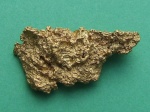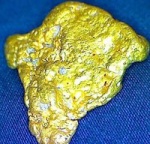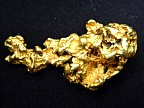driving on corrugations
+7
Nightjar
xenon
U308
Billy
GoldstalkerGPX
Universal1
hoolahoopa
11 posters
Gold Detecting and Prospecting Forum :: General :: Travelling tips - 4x4's - Caravans & Campers ETC :: 4WD Section
Page 1 of 1
 driving on corrugations
driving on corrugations
Gday everyone, thought this was a appropriate question as a lot of us are going to be doing it over the next few months.
what is the best way or from experience the best way to travel on corragated roads?
flat out
slowly
let tyres down
i look forward to other peoples views experiences etc.
cheers
hoolahoopa
what is the best way or from experience the best way to travel on corragated roads?
flat out
slowly
let tyres down
i look forward to other peoples views experiences etc.
cheers
hoolahoopa
hoolahoopa- Contributor Plus

- Number of posts : 280
Registration date : 2009-04-14
 Re: driving on corrugations
Re: driving on corrugations
Depends on different situations & whether your towing or not.
If you appreciate your 4X4 and want to keep it for years to come, "Go Slow"
If your towing, "Go Slow"
If your just out for a good time, Flat out works the best, You may want to take off or muddy your number plates first! National parks are a great place for this sort of activity!
Honestly: You need to drive to the conditions and what suits you, Corrugations or not!
Cheers~Chris.
If you appreciate your 4X4 and want to keep it for years to come, "Go Slow"
If your towing, "Go Slow"
If your just out for a good time, Flat out works the best, You may want to take off or muddy your number plates first! National parks are a great place for this sort of activity!
Honestly: You need to drive to the conditions and what suits you, Corrugations or not!
Cheers~Chris.
Guest- Guest
 Re: driving on corrugations
Re: driving on corrugations
A faster speed with your tyre's pumped to normal pressures works well as the car tends to not sink in to the ruts as much, causing less of a vibrational feel inside. The speed depends on the size of the ruts, although be careful not to go overboard on the speed. If the speed is getting to a point where it starts to seem dangerous and you still have a lot of vibration, then it's a good idea to back off and go slow.

Universal1- Good Contributor

- Number of posts : 115
Registration date : 2010-02-13
 Re: driving on corrugations
Re: driving on corrugations
.
Last edited by GoldstalkerGPX on Sun Dec 04, 2011 1:17 am; edited 1 time in total (Reason for editing : pointless)

GoldstalkerGPX- Contributor Plus

- Number of posts : 1732
Age : 100
Registration date : 2009-07-27
 Re: driving on corrugations
Re: driving on corrugations
The only thing I can add to this is that corragated roads can be absolute hell on the shock absorbers.
Kilometre after kilometre of rough road will cause a large amount of heat to build up in the shocks, and apart from shaking the rest of the vehicle to bits you may find that the shocks (depending on quality) will possibly self destruct. Ask any mechanics that deal with cars after they have travelled "the Wanaaring Road" when it hasn't been graded in a while or there have been a lot of trucks using it and cut it up. Can be very ordinary, but like others have mentioned, driving to the conditions is prob #1 tip.
Kilometre after kilometre of rough road will cause a large amount of heat to build up in the shocks, and apart from shaking the rest of the vehicle to bits you may find that the shocks (depending on quality) will possibly self destruct. Ask any mechanics that deal with cars after they have travelled "the Wanaaring Road" when it hasn't been graded in a while or there have been a lot of trucks using it and cut it up. Can be very ordinary, but like others have mentioned, driving to the conditions is prob #1 tip.

Billy- Contributor Plus

- Number of posts : 271
Age : 50
Registration date : 2011-04-08
 Re: driving on corrugations
Re: driving on corrugations
As billy has said....."corrugated road can be absolute hell on the shock absorbers" the oil in the shock absorber will heat up to the point that the oil will get thiner and air bubbles will be forced into it when this happens, the oil will flow through the orifices of the piston at unpredictable rates and decrease the performance of any standard shock.
Gas shocks are better why...........they are built with pressurized nitrogen inside the shock body This keeps the oil from aerating because nitrogen does not mix with the shock oil, and forces the oil molecules to stay packed together much more closely, thereby all but preventing the oil from getting any air bubbles within.
In short let your tyres down 10 to 15 psi and let the tyres take some of the workload, your shocks will appreciate it, so will the every thing else interconnected.

Edit: I should add the reduction in tyre pressure of 10 to 15 psi is based on my tyre pressure which is 40 psi, so if running lower pressure decrease pressure accordingly example 32 psi lower to 25 psi, be aware if the tyre pressure is to low you will run the risk of bending a rim on a above average corrugation.
Gas shocks are better why...........they are built with pressurized nitrogen inside the shock body This keeps the oil from aerating because nitrogen does not mix with the shock oil, and forces the oil molecules to stay packed together much more closely, thereby all but preventing the oil from getting any air bubbles within.
In short let your tyres down 10 to 15 psi and let the tyres take some of the workload, your shocks will appreciate it, so will the every thing else interconnected.
Edit: I should add the reduction in tyre pressure of 10 to 15 psi is based on my tyre pressure which is 40 psi, so if running lower pressure decrease pressure accordingly example 32 psi lower to 25 psi, be aware if the tyre pressure is to low you will run the risk of bending a rim on a above average corrugation.
Last edited by U308 on Sun May 08, 2011 8:53 pm; edited 2 times in total (Reason for editing : Add on.....)

U308- Seasoned Contributor

- Number of posts : 163
Registration date : 2009-10-26
 Re: driving on corrugations
Re: driving on corrugations
Definately have to agree with the rule "drive to conditions".
I find that on a highly corragated dirt road in good conditions 60-70kph smooths the ride out as you tend to drift over the corragations. But if the road has deep corragations I would keep the speed down and put up with the bumps.
Sure others would agree here that there is nothing worse than driving at a good speed, drifting over the corragations when suddenly, there, 100m in front of you, is a trench that has been washed out. It is amazing how we all have the reaction speed of a mongoose in those situations

I find that on a highly corragated dirt road in good conditions 60-70kph smooths the ride out as you tend to drift over the corragations. But if the road has deep corragations I would keep the speed down and put up with the bumps.
Sure others would agree here that there is nothing worse than driving at a good speed, drifting over the corragations when suddenly, there, 100m in front of you, is a trench that has been washed out. It is amazing how we all have the reaction speed of a mongoose in those situations

xenon- Contributor Plus

- Number of posts : 375
Registration date : 2011-03-10
 Re: driving on corrugations
Re: driving on corrugations
My practice is along the lines that U308 mentions, reduce normal tyre pressure to about 32psi (275/16 tyres) with speeds around 60/70km's.
On WA outback corrugated roads, when the way ahead is definitely clear with no approaching vehicles or bends I always drive on the RH side of the road, driving into the leading edge of corrugations is smoother than the trailing.
Cheers
Peter
On WA outback corrugated roads, when the way ahead is definitely clear with no approaching vehicles or bends I always drive on the RH side of the road, driving into the leading edge of corrugations is smoother than the trailing.
Cheers
Peter
 Re: driving on corrugations
Re: driving on corrugations
Nightjar wrote:My practice is along the lines that U308 mentions, reduce normal tyre pressure to about 32psi (275/16 tyres) with speeds around 60/70km's.
On WA outback corrugated roads, when the way ahead is definitely clear with no approaching vehicles or bends I always drive on the RH side of the road, driving into the leading edge of corrugations is smoother than the trailing.
Cheers
Peter
Good tip Nightjar.
It is a strange feeling driving on the wrong (right?) side of the road even though you know there are no other vehicles coming
Perfect example of driving to the conditions.

Billy- Contributor Plus

- Number of posts : 271
Age : 50
Registration date : 2011-04-08
 Re: driving on corrugations
Re: driving on corrugations
G'day Hoolahoopa.
Flat out
Slowly
Let tyres down. All three have their uses according to the size,height and distance between corrugations. One thing for certain though,by having the vehicle in constant 4WD when tackling bad corrugations,will give you that extra sure footed grip and help reduce under-steer dramatically.
Cheers kon61.

kon61- Management
- Number of posts : 4993
Registration date : 2010-02-19
 Re: driving on corrugations
Re: driving on corrugations
.
Last edited by GoldstalkerGPX on Sun Dec 04, 2011 1:18 am; edited 1 time in total (Reason for editing : pointless)

GoldstalkerGPX- Contributor Plus

- Number of posts : 1732
Age : 100
Registration date : 2009-07-27
 Re: driving on corrugations
Re: driving on corrugations
GoldstalkerGPX wrote:Under-steer is when you hit the fence with the front of the vehicle
Over-steer is when you hit the fence with the rear end of the vehicle.

That's one way of saying it!

Universal1- Good Contributor

- Number of posts : 115
Registration date : 2010-02-13
 Re: driving on corrugations
Re: driving on corrugations
from the mouth of an expert goldstalkerGPX?? 
oh tell me, did you at least stand the fences back up? LOL
oh tell me, did you at least stand the fences back up? LOL

TheH0ward- Contributor Plus

- Number of posts : 842
Age : 50
Registration date : 2010-08-05
 Re: driving on corrugations
Re: driving on corrugations
.
Last edited by GoldstalkerGPX on Sun Dec 04, 2011 1:18 am; edited 1 time in total (Reason for editing : pointless)

GoldstalkerGPX- Contributor Plus

- Number of posts : 1732
Age : 100
Registration date : 2009-07-27
 Re: driving on corrugations
Re: driving on corrugations
Damn! I liked that Horsepower and Torque bit GoldstalkerGPX. Copped a stomach cramp laughing,trying to imagine it happening.
Cheers kon61.

kon61- Management
- Number of posts : 4993
Registration date : 2010-02-19
 Re: driving on corrugations
Re: driving on corrugations
GoldstalkerGPX wrote:
"It is a shame that most of the vehicles on the road today are operated by steerers and not drivers," !
We have positions available for drivers.
Steering Wheel Attendants need not apply.
Guest- Guest
 Re: driving on corrugations
Re: driving on corrugations
I was a throttle jockey, gear jammin Mo Fo once! Can I apply 

P.S. : Mo Fo = Motorcar Owned Ford Only


P.S. : Mo Fo = Motorcar Owned Ford Only


Billy- Contributor Plus

- Number of posts : 271
Age : 50
Registration date : 2011-04-08
 Re: driving on corrugations
Re: driving on corrugations
The latter comments on this thread are a perfect example of how to completely destroy a genuine question about what is the best driving examples for gravel roads.
Every year thousands of prospectors head NESW, with either a single vehicle or with a camper or caravan in tow and somewhere they will encounter unsealed roads.
There are many roads out there with rusting wrecks on the road side that may have not been there if the driver was able to handle the conditions at the time of travel.
Lets get back on track and try and contribute some positive input on how to arrive home safely after your planned trip.
Cheers
Peter
Every year thousands of prospectors head NESW, with either a single vehicle or with a camper or caravan in tow and somewhere they will encounter unsealed roads.
There are many roads out there with rusting wrecks on the road side that may have not been there if the driver was able to handle the conditions at the time of travel.
Lets get back on track and try and contribute some positive input on how to arrive home safely after your planned trip.
Cheers
Peter
 Re: driving on corrugations
Re: driving on corrugations
Use your gears to slow down as much as you can, and break little as this will shake the son of god out of your ride.
Pull off the road where there is no corrugations if you can, and break hard if need be.
Pull off the road where there is no corrugations if you can, and break hard if need be.
 Re: driving on corrugations
Re: driving on corrugations
Consider how a currigated road forms. (cause despite contrary belief, the government don't actually make them like that....)
With this consideration, you can go faster or slower than the average speed that forms the currynations. To go faster than the average speed, would mean you may be risking losing it over that 60 degree embankment that drops 100 metres or so.
To go slower would be the optimum safest ride.
Oh and they are always seem to be worse on the bends i guess due to erosion in the gullys of the currynations and we all know it's easier to lose it on the benz.
Dont forget the old rule " drive to the conditions"
With this consideration, you can go faster or slower than the average speed that forms the currynations. To go faster than the average speed, would mean you may be risking losing it over that 60 degree embankment that drops 100 metres or so.
To go slower would be the optimum safest ride.
Oh and they are always seem to be worse on the bends i guess due to erosion in the gullys of the currynations and we all know it's easier to lose it on the benz.
Dont forget the old rule " drive to the conditions"
Guest- Guest
 Re: driving on corrugations
Re: driving on corrugations
Gday
I hate corrugated tracks with a passion, go too fast and you can end up in the scrub, go too slow and it will re arrange all your gear inside the vehicle, I have even had soft drink cans burst open due to heat and several klms on a corrugated track.
Many vehicles have ended up in the scrub after hitting a patch of corrugations at high speed, care should always be taken with your speed on unfamiliar tracks, a lot of the well used gravel tracks leading out of towns say like Kalgoorlie have vast areas of corrugations that can be worse at different times of the year, some are well maintained and some are not, hitting a patch of corrugations at high speed will almost always send your vehicle sideways, making you over correct the steering and lose control, quite a few of the vehicles I have seen wrecked have been rolled over, and if you are towing a van you run the risk of jack knifing and wrecking both the van and the car, once the van goes sideways as it is usually the heavier vehicle so it can also flip the car over as well.
Keep in mind also that some of these tracks also can carry heavy vehicles too such as trucks and trailers, and thats probably the reason that they get so badly corrugated in the first place, so travelling at a safe speed is important for many reasons.
Its simply a case of finding the ideal speed and as Nightjar suggested driving on the opposite side of the road can help, providing you dont go over any hills that way or you might have a head on, take your time and think about the effect that all this can have on your vehicle as well, it can loosen wheel nuts, shake the battery from its carrier, and make all sorts of electrical components rub together, let your tyre pressures down if you have some distance to travel under these conditions as well it all helps.
If you see someone else coming out of the track you intend to travel there is no harm in asking them about the road conditions, also many drivers travel with the uhf radio on so a quick call could soon let you know what you are in for.
One track we travelled was so badly corrugated that I didnt want to go back that way and even considered the option of crossing a salt lake to avoid it, the only other thing I hate more than a corrugated road would be getting bogged on a salt lake, been there done that, so in the end had no choice but to do the 40 klms of almost all corrugations back the way we came, by the time we got off it I was picking my fillings out of the dashboard.
cheers
stayyerAU
I hate corrugated tracks with a passion, go too fast and you can end up in the scrub, go too slow and it will re arrange all your gear inside the vehicle, I have even had soft drink cans burst open due to heat and several klms on a corrugated track.
Many vehicles have ended up in the scrub after hitting a patch of corrugations at high speed, care should always be taken with your speed on unfamiliar tracks, a lot of the well used gravel tracks leading out of towns say like Kalgoorlie have vast areas of corrugations that can be worse at different times of the year, some are well maintained and some are not, hitting a patch of corrugations at high speed will almost always send your vehicle sideways, making you over correct the steering and lose control, quite a few of the vehicles I have seen wrecked have been rolled over, and if you are towing a van you run the risk of jack knifing and wrecking both the van and the car, once the van goes sideways as it is usually the heavier vehicle so it can also flip the car over as well.
Keep in mind also that some of these tracks also can carry heavy vehicles too such as trucks and trailers, and thats probably the reason that they get so badly corrugated in the first place, so travelling at a safe speed is important for many reasons.
Its simply a case of finding the ideal speed and as Nightjar suggested driving on the opposite side of the road can help, providing you dont go over any hills that way or you might have a head on, take your time and think about the effect that all this can have on your vehicle as well, it can loosen wheel nuts, shake the battery from its carrier, and make all sorts of electrical components rub together, let your tyre pressures down if you have some distance to travel under these conditions as well it all helps.
If you see someone else coming out of the track you intend to travel there is no harm in asking them about the road conditions, also many drivers travel with the uhf radio on so a quick call could soon let you know what you are in for.
One track we travelled was so badly corrugated that I didnt want to go back that way and even considered the option of crossing a salt lake to avoid it, the only other thing I hate more than a corrugated road would be getting bogged on a salt lake, been there done that, so in the end had no choice but to do the 40 klms of almost all corrugations back the way we came, by the time we got off it I was picking my fillings out of the dashboard.
cheers
stayyerAU
Guest- Guest
 Re: driving on corrugations
Re: driving on corrugations
Hey All;
Just spent 3 mnth north of laverton mostly on dirt roads and loved it,met some top people,and came home with a crook back,so being a highly itelligent xtrucky/mechanic and by myself I took what some people laughinly call a road "the laverton-warburton-alice springs road"about 1300klm of corrugations,was told it gets worse when you hit NT(a unbelievable UNDERstatement).though a lot better road than the anne beadel hwy (laverton to coober pedy) which I was going to use.
Nightjar you are spot on,something to add,check the date on your tyres,ones older than 5 years do NOT like corrugations,especially the inside ones.They tend to blow-out,even with heaps of tread.If you are using such tracks stick to at least a 10 ply light truck tyre,and buy good tyres not cheap crap or as the dealers say "budget tyres".
Ironstone
Just spent 3 mnth north of laverton mostly on dirt roads and loved it,met some top people,and came home with a crook back,so being a highly itelligent xtrucky/mechanic and by myself I took what some people laughinly call a road "the laverton-warburton-alice springs road"about 1300klm of corrugations,was told it gets worse when you hit NT(a unbelievable UNDERstatement).though a lot better road than the anne beadel hwy (laverton to coober pedy) which I was going to use.
Nightjar you are spot on,something to add,check the date on your tyres,ones older than 5 years do NOT like corrugations,especially the inside ones.They tend to blow-out,even with heaps of tread.If you are using such tracks stick to at least a 10 ply light truck tyre,and buy good tyres not cheap crap or as the dealers say "budget tyres".
Ironstone

Ironstone- Contributor

- Number of posts : 24
Registration date : 2011-03-29
 Similar topics
Similar topics» Mitsubishi challenger 2000 Ignition lights coming on while driving
» Is it illegal to use CB or UHF while driving.
» taxi driving--gold prospecting
» My time in the Mines...
» Driving around the old goldfields! Chewton Newstead Maryborough
» Is it illegal to use CB or UHF while driving.
» taxi driving--gold prospecting
» My time in the Mines...
» Driving around the old goldfields! Chewton Newstead Maryborough
Gold Detecting and Prospecting Forum :: General :: Travelling tips - 4x4's - Caravans & Campers ETC :: 4WD Section
Page 1 of 1
Permissions in this forum:
You cannot reply to topics in this forum